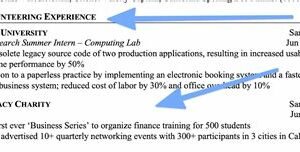Table of Contents
A volunteer worker job description outlines the responsibilities and tasks that volunteers are expected to perform. It provides details about the organization, its mission, and the specific role volunteers will play in achieving that mission. The job description helps attract potential volunteers by highlighting the skills and qualities desired, as well as the benefits they will receive from volunteering. It also sets clear expectations regarding time commitment, training, and reporting requirements.
A volunteer worker plays a vital role in making a difference in the community by offering their time and skills to support various organizations and causes. Whether it is assisting at a local shelter, organizing fundraising events, or providing mentorship to underprivileged youth, volunteer work allows individuals to contribute to society and create lasting positive change. As a volunteer worker, you not only have the opportunity to make a meaningful impact but also gain valuable experiences and develop new skills. Transitioning into a professional role, this job description outlines the responsibilities and qualifications required for a volunteer worker, highlighting the importance of dedication, reliability, and a passion for helping others.
Introduction
Volunteering is a noble act that allows individuals to contribute their time and skills to help those in need. Volunteer workers play a vital role in various organizations and communities, assisting in carrying out essential tasks and making a positive impact on society. This article aims to provide an overview of the job description of a volunteer worker, highlighting their responsibilities, qualifications, and the benefits they bring to the community.
Responsibilities
As a volunteer worker, your responsibilities may vary depending on the organization or project you are involved in. However, some common tasks include:
Assisting with Program Implementation
Volunteer workers often collaborate with program coordinators to implement various initiatives. This may involve organizing events, supporting educational programs, or providing assistance during community outreach projects.
Supporting Administrative Tasks
Administrative duties are a crucial part of volunteering. You may be responsible for maintaining records, managing databases, responding to emails, or helping with logistical arrangements for events or meetings.
Providing Direct Assistance
Volunteer workers frequently engage in direct assistance by providing support to those in need. This can include offering counseling services, distributing resources, or contributing to medical missions.
Qualifications
While formal qualifications may not always be required for volunteering positions, possessing certain skills and qualities can greatly enhance your effectiveness as a volunteer worker. Some essential qualifications include:
Excellent Communication Skills
Clear and effective communication is crucial when working with diverse individuals or teams. Being able to express ideas, listen actively, and adapt your communication style to different situations will help you connect with others and fulfill your responsibilities more effectively.
Empathy and Compassion
Volunteer work often involves interacting with individuals facing challenging circumstances. Demonstrating empathy and compassion towards others helps create a supportive environment and ensures that the needs of those being served are met with understanding and kindness.
Flexibility and Adaptability
Volunteering can be unpredictable, and situations may change rapidly. Being flexible and adaptable allows you to adjust to new challenges, environments, and tasks while maintaining a positive attitude and willingness to learn.
Benefits
Engaging in volunteer work not only benefits the community but also offers numerous advantages to the volunteers themselves. Some key benefits include:
Satisfaction and Fulfillment
Contributing your time and skills towards a cause you care about can provide a profound sense of satisfaction and fulfillment. Knowing that you are making a positive impact on the lives of others can boost your self-esteem and overall well-being.
Personal Growth and Development
Volunteering offers opportunities for personal growth and development. It allows you to acquire new skills, gain valuable experience, and broaden your perspective by interacting with diverse individuals and communities.
Networking and Building Connections
Volunteering often involves collaborating with a wide range of people, including fellow volunteers, organization staff, and community members. These connections can expand your professional network, open doors to new opportunities, and provide you with a support system.
Conclusion
Volunteer workers play a crucial role in society, dedicating their time and skills to make a positive impact on the lives of others. By understanding the job description, responsibilities, qualifications, and benefits associated with volunteer work, you can make informed decisions about how to get involved and contribute to your community. Whether it is assisting with program implementation, supporting administrative tasks, or providing direct assistance, volunteering allows you to give back while experiencing personal growth and fulfillment.
Position Overview:
The volunteer worker is responsible for assisting the organization in various tasks, including event planning, fundraising, data entry, and other administrative duties. This position requires strong organizational and communication skills, as well as the ability to work well within a team.
Responsibilities:
As a volunteer worker, your main responsibilities include supporting the organization in day-to-day operations, assisting with event coordination, engaging in outreach activities, and promoting the organization’s mission. Additionally, you may be asked to participate in meetings and provide input on strategic planning.
Qualifications:
To excel in this role, you should possess strong attention to detail, excellent time management skills, and the ability to multitask effectively. Additionally, having a passion for the organization’s cause and a willingness to learn and grow within the role are highly valued.
Training and Support:
As a volunteer worker, you will receive comprehensive training and ongoing support from the organization’s staff and volunteers. This may include orientation sessions, guidance on specific tasks, and access to resources and materials necessary to perform your duties efficiently.
Time Commitment:
The volunteer worker role typically requires a commitment of a certain number of hours per week or month, depending on the organization’s needs and your availability. Flexibility is often available to accommodate your schedule, but a consistent commitment is important for the successful execution of tasks and projects.
Benefits:
While the volunteer worker position is unpaid, it offers numerous benefits. You will have the opportunity to gain valuable experience in a professional setting, develop new skills, expand your network, and make a meaningful difference in your community or the target population the organization serves.
Reporting and Accountability:
As a volunteer worker, you will be expected to maintain accurate records of your activities, submit reports on progress and outcomes, and communicate regularly with the organization’s designated supervisor. This ensures transparency and accountability for your work and allows for continuous improvement.
Impact and Recognition:
By dedicating your time and skills as a volunteer worker, you contribute to the organization’s overall impact and success. The recognition and appreciation for your efforts may come in various forms, such as letters of recommendation, certificates of appreciation, or potential referrals for future opportunities.
As a volunteer worker, your role is crucial in supporting the organization and its mission. The job description outlines the responsibilities and expectations of this position, ensuring that you are aware of your duties and can effectively contribute to the success of the organization. It is important to approach this role with a professional voice and tone, demonstrating your commitment and dedication to making a difference.
When preparing the job description for a volunteer worker, it should include the following:
- Title: Clearly define the position as a volunteer worker to differentiate it from paid positions within the organization.
- Objective: State the overall objective of the volunteer worker position, emphasizing the impact they will have on the organization’s mission or cause.
- Responsibilities: Provide a detailed list of the tasks and responsibilities that the volunteer worker will be expected to perform. These may include administrative tasks, event coordination, fundraising efforts, or direct involvement with program participants.
- Qualifications: Outline the desired qualifications for the position, such as specific skills, knowledge, or experience. This helps to attract individuals who have the necessary capabilities to fulfill their duties effectively.
- Time Commitment: Clearly state the expected time commitment for the volunteer worker, including the number of hours per week or month and any specific scheduling requirements. This ensures that potential volunteers understand the level of commitment required before applying.
- Supervision: Indicate who the volunteer worker will report to and who will provide guidance and support throughout their tenure. This allows volunteers to know who to turn to for questions or concerns.
- Training and Development: Highlight any training or development opportunities that will be provided to the volunteer worker. This could include workshops, seminars, or online resources that will enhance their skills and knowledge.
- Benefits: Clearly communicate any benefits or perks that the volunteer worker will receive as part of their involvement. This could include recognition events, networking opportunities, or letters of recommendation upon completion of their service.
- Code of Conduct: Clearly state the organization’s expectations regarding professionalism, confidentiality, and ethical behavior. This ensures that volunteers understand and adhere to the organization’s values and guidelines.
- Application Process: Provide instructions on how interested individuals can apply for the volunteer worker position, including any required application forms, interviews, or background checks.
Remember, as a volunteer worker, you are representing the organization, and it is important to maintain a professional voice and tone throughout your interactions. By understanding and fulfilling your job description, you contribute to the organization’s success and make a meaningful impact in your community.
Thank you for taking the time to read our blog post on the volunteer worker job description. We hope that you found this information informative and useful. As a volunteer worker, your contribution to society is invaluable, and we want to ensure that you have a clear understanding of the duties and responsibilities associated with this role.
First and foremost, it is important to note that as a volunteer worker, you are offering your services without any financial compensation. This means that your primary motivation should be a genuine desire to make a difference and help others. Whether you choose to work in a local community center, a hospital, or an animal shelter, your dedication and commitment are essential in creating positive change.
One of the key aspects of being a volunteer worker is flexibility. You may be asked to perform a variety of tasks depending on the needs of the organization you are volunteering for. This could include administrative duties, event planning, fundraising, or even hands-on work with individuals in need. It is important to approach each task with enthusiasm and a willingness to learn, as this will not only benefit the organization but also provide you with valuable skills and experiences.
In conclusion, becoming a volunteer worker is a selfless act that allows you to give back to your community and make a meaningful impact. By understanding the job description and embracing the responsibilities that come with it, you can ensure that your volunteer experience is both fulfilling and rewarding. Remember, the true measure of success as a volunteer worker lies not in the recognition received but in the lives you touch and the positive change you bring about. We encourage you to explore volunteer opportunities in your area and embark on this incredible journey of making a difference.
Thank you once again for visiting our blog, and we hope that you found this information helpful. If you have any further questions or would like to share your own volunteer experiences, please feel free to leave a comment below. We look forward to hearing from you!
Video Volunteer Worker Job Description
People also ask about Volunteer Worker Job Description:
What are the main responsibilities of a volunteer worker?
- Supporting and participating in various activities or events organized by the organization.
- Providing assistance to staff members or other volunteers in performing tasks.
- Completing assigned duties or projects within the given time frame.
- Fulfilling the organization’s mission and goals through their volunteer work.
- Maintaining a positive and professional attitude while representing the organization.
What skills are required for a volunteer worker?
- Excellent communication skills to interact with staff members, other volunteers, and the community.
- Ability to work in a team and collaborate with others towards a common goal.
- Flexibility and adaptability to handle different tasks or situations.
- Organizational skills to manage time efficiently and prioritize tasks.
- Problem-solving skills to tackle challenges that may arise during volunteering.
Is prior experience required to become a volunteer worker?
What are the benefits of being a volunteer worker?
- The opportunity to give back to the community and make a positive impact.
- Gaining valuable experience and skills that can enhance personal and professional growth.
- Building a network of like-minded individuals and expanding social connections.
- Developing a sense of fulfillment and satisfaction by helping others in need.
- Exploring new interests or hobbies through volunteer work.
A volunteer worker is responsible for assisting organizations or communities by dedicating their time and skills without expecting monetary compensation. Their main responsibilities may include:
To be an effective volunteer worker, certain skills are valuable. These can include:
No, prior experience is not always required to become a volunteer worker. Organizations often welcome individuals from diverse backgrounds and skill sets. However, some specialized volunteer positions might require specific experience or qualifications.
Being a volunteer worker can provide numerous benefits, including:
Remember, the specific job description and requirements may vary depending on the organization and the nature of the volunteer work. It’s always best to reach out to the organization directly for detailed information.






